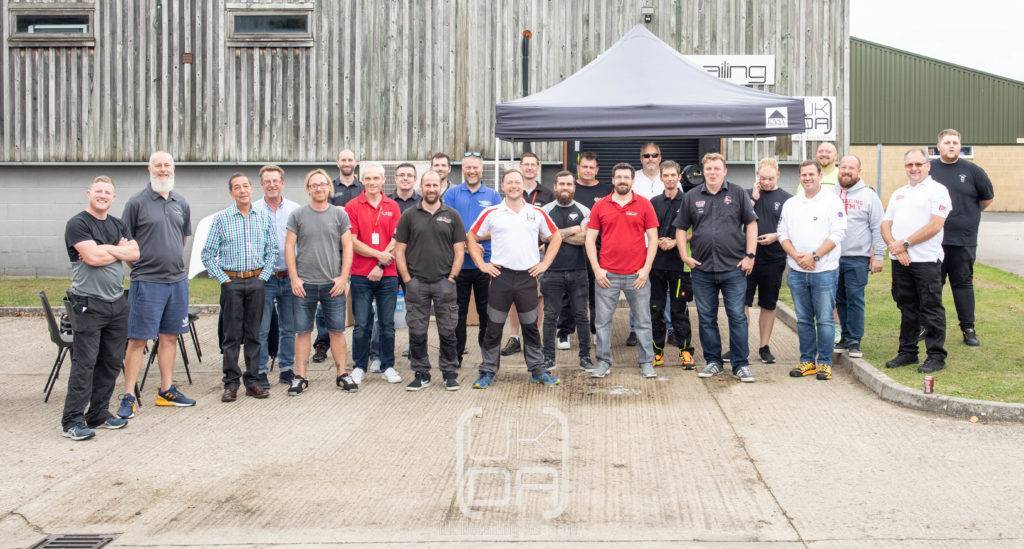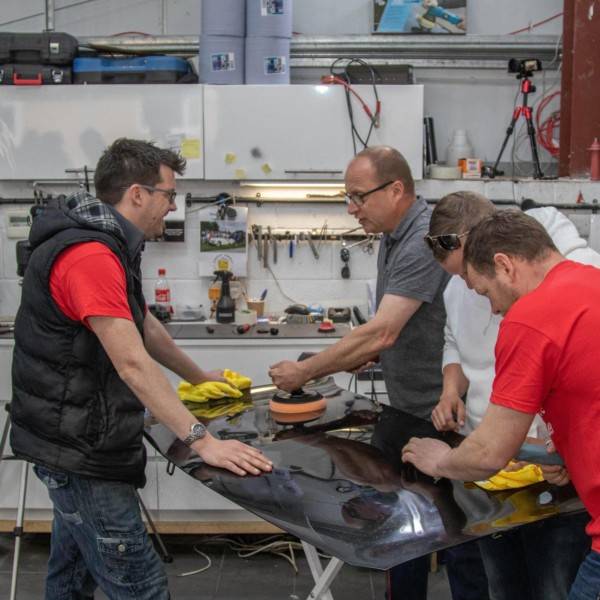
What is the point of a trade association?
Or, at least, membership of one…
Every major industry or sector will have a trade association, or guild of masters, or in some cases, a collective of the biggest names in that industry, whose aim is to promote and lobby the work and reputation of its members to the general public. Gas safe, Corgi and the Institute of Chartered Surveyors, for example, are all registry bodies which members have to belong to in order to operate legally. The FSB, Road Haulage Association, National Body Repair Association, UK Hospitality; are all lobbying trade bodies available for businesses in that sector to join, to aid with promotion, legitimacy and gain access to relevant resources and assistance.
There’s always been a bit of confusion within the detailing industry over whether there is a need for such a body to semi-regulate and support what is an unregulatable industry – with no official standards or qualifications available, what can they actually achieve? Certainly not the same as Gas Safe – the “risks” associated with detailing may seem major to a car enthusiast – no one likes the thought of a car coming back less detailed than when it went in – but in reality, a poorly detailed car doesn’t have the potential for catastrophe as a poorly installed gas pipe…
But greater consumer awareness and a filter for poor workmanship, the same as other non-legal trade bodies do? That’s achievable.
Some clamour for it to keep standards high and discourage have-a-go heroes from affecting public perception of the career and business standards, whilst at the same time say they’re a pointless badge that’s trying to tell them how to do their job. And that’s a Catch-22.
Because you can’t have both.
You can’t call for action and then be dismissive when action is taken and you don’t support it or try to steer it.

The first hope many have when looking at trade association memberships is that they will actively bring you the magic pill of work referrals, similar to what the likes of Yell and Checkatrade do for some. Whilst there may be a stream of work directly from a searchable database or map, when was the last time you searched for a gas engineer or electrician by going to the official trade body website, in the first instance?
You may well check them out further after finding them, to ensure their competence, but would that search happen before just Googling the service you want? Or asking Facebook for recommendations? Listings like this are a tool, and many subscribers seem to have bitter disappointment when, despite the detailed explanations to the contrary upon signing on, their phone does not suddenly light up once they pay their membership fees.
What most will find with general customer acquisition is that their company will be discovered by search engine recommendations initially, and then clicked through. This will usually be in the form of a drive to the website for direct contact details, to view services offered and to see past work performed.
The trade association benefits really start to impact at this point, with a trade body logo standing out on a homepage and marking you, at least mentally to the consumer, as a competent and recognised professional with a reputation to protect. The trade body image will usually have a link to its website so that potential customers can see what you’re a part of, helping build a better view of your brand and image by proxy. They’re an enhancement to what’s already there, a gilding, and one that can flip a customer from “Just Browsing” to “calling”
The second aspect is something that actually happened before they clicked on your website. Trade bodies invest in SEO and web scoring on their own sites to a degree that Google can recognise as a “legitimate information source”. This scores them very highly as an authority in Google’s eyes, and this then flows down to your website as backlinks and listings. Depending on how a customer has searched and the terms used this is likely to have pushed your website recognition and score up the page quite a way, above or around those spending hundreds or thousands on dedicated SEO management.
The two major trade bodies in the UK – PVD and The IDA – also have another recognition card.
Assessments.
An assessment and certification from either or both bodies is a fantastic tool to help make your business stand out in a potentially crowded marketplace. Professionals go to product training for their certificates in product X, and receive permission to advertise the use of their products. Trade bodies do this too, but they have to be sure you know what you’re talking about before letting you loose with their branding, recognition, and support. they achieve this with a theory and practical assessment of an individual’s aptitude, professionalism and capabilities. It’s also an opportunity to advise companies who perhaps don’t meet the standard on how they can improve and work towards membership. Furthermore, it’s all private. if you don’t get it, there’s no lampooning, only you, your assessors and the association will ever know what the issue was, so you are free to improve and re-apply as soon as you feel you have met the requirements.


You’ll notice that detailing service pricing doesn’t tend to vary that much after the discount chasers are taken out of the equation. So what the savvy customer is left with is a choice of similar businesses, offering similar services, in a similar area and at a similar price point…
At this stage separating potential companies could come down to who answers the phone first or connects with their needs best. But if they’re looking for a starting point, a badge of trade association-backed merit and competence is likely to put you higher on their contact list and pre-ticks their “competence” box so you can get on with their direct query.
So once the customer has sent you an enquiry, how does an association help further?
Networking.

Detailing is a solo occupation for most. When issues arise and you’re looking for experienced answers, YouTube and forums are your likely port of call for lack of other options. But what if you used the association’s networking capabilities to speak regularly to other detailers? To pick their brains and have yours picked in return. To be able to access the hive mind of hundreds of other members in a moderated and friendly private space?
Well, that’s on offer from both bodies, and it’s not just online, but in person too – at events, coffee mornings and training days all year. Don’t underestimate the importance of having this in your corner, not just for detailing queries, but for business questions, equipment questions, and product recommendations even. The collective knowledge of hundreds of others in the same situation as you? That’s powerful.
There are many other ways a trade body can help you grow. From pre-made forms and legal wording to business advice and coaching to discounts from associated traders and insurers. But it does still require work from you to be worthwhile.
Trade associations can’t and don’t make your business work for you. That’s not their function. They can only support, enhance and promote what’s already there. For that reason, they’re not for everyone! Some prefer to promote on their own, some want to make their own name for themselves and some already have that network of support. But if you think even a tiny boost could make a difference to your detailing business, for the sake of pounds per month, wouldn’t it be worth giving them a try and see if it’s for you?
Come and find out if it’s for you.
On Saturday the 20th of May, and, if you’re reading this after the fact, several times a year, UKDA – as a UK accreditation centre for both associations – hosts a trade body open morning, 10-13:00 – for detailers, members and non-members, to come down, have a chat, a coffee, and answer any questions about memberships, assessments, and general queries. It’s a great chance to network with others in the industry, and you may find there are more benefits to a simple membership than you thought.
Or not.
But you won’t know unless you ask the questions first.


